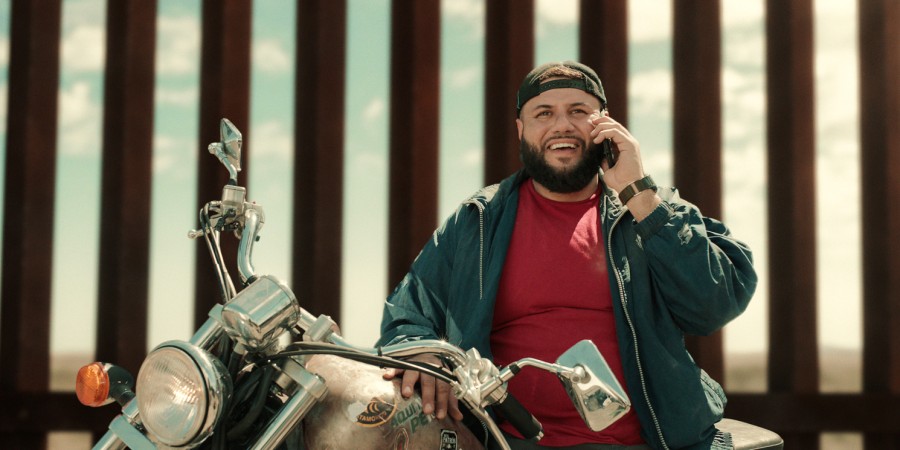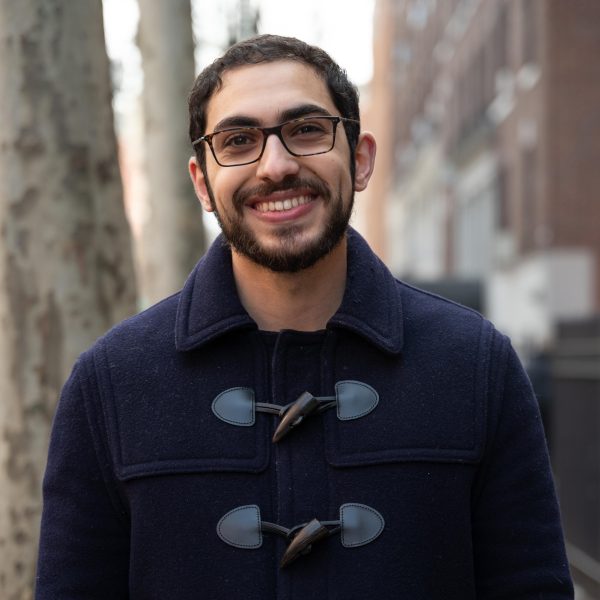Review: Mohammed Amer deconstructs the Palestinian American experience in Netflix’s ‘Mo’
Mohammed Amer stars in his own semi-autobiographical Netflix comedy about struggling to balance his Palestinian culture and traditions in America.
“Mo” paints a semiautobiogrpahical portrait of the Palestinian-American experience with comedy. “Mo” is available on Netflix. (Courtesy of Netflix© 2022)
September 9, 2022
Mohammed Mustafa Amer, most commonly known as Mo Amer, has been a prominent figure in mainstream Arab American media for years, with renowned stand-up specials including “Mo Amer: The Vagabond” (2018) and “Mo Amer: Mohammed in Texas” (2021). In recent years, Amer has become one of the most influential Arab Americans working in the entertainment industry, with a rare honesty and unique sense of humor.
When he announced that he’d be creating and starring in his own Netflix series, his fans were ecstatic to see the Palestinian refugee experience portrayed in mainstream media. The result is an incredibly personal, funny and authentic story about the immigrant experience that parallels his own life as a Palestinian American.
Co-created with Ramy Youssef, a primetime Emmy-nominated Egyptian American comedian, creator and star of Hulu’s Emmy-award winning “Ramy,” “Mo” was directed by Algerian American Solvan “Slick” Naim and tells the story of Mohammed Najjar (Mohammed Amer), who goes by “Mo.” Najjar is a Palestinian Muslim refugee who now lives in Houston, Texas, after leaving Kuwait at an early age.
Scenes in which Mohammed appears as a complete fish out of water punctuate the distressing nature of his experience as a refugee who has been relocated to Texas. In episode five, named “Tombstone,” a flashback shows how Mohammed is ridiculed by his new peers for wearing a vest and bowtie, unaware of American clothing norms. The scene clearly displays the cruel stings of embarrassment that inform his immigrant experience.
The years of struggle for his family and himself to attain asylum status emphasizes the theme of belonging throughout “Mo.” Their immigration lawyer, Rhonda Modad (Cynthia Yelle), has kept them waiting for years with no progress, forcing Mohammed to fire her and search for someone new. We are thus thrown into the chaotic life of the Najjar family — his strict, yet loving mother Yusra (Farah Bsieso), his older brother Sameer (Omar Elba) and his estranged older sister Nadia (Cherien Dabis) who ironically already attained U.S. citizenship by marrying a Canadian.
Mohammed’s father, Mustafa (Mohammad Hindi), passed away when Mohammed was just a boy, and through a series of flashbacks, the audience learns more about Mustafa — he is a humble, hardworking owner of a small drug store. Later in the season, Mohammed recounts stealing $20 from the register for reasons unknown to the viewer, and his father’s sudden, unrelated heart attack immediately after. His guilt, among his financial and legal troubles, constantly haunts him.
Outside of his family, Mohammed’s social life is also a central aspect of the show. His Mexican Catholic girlfriend of two years, Maria (Teresa Ruiz), runs a successful garage in the city, and her background stirs drama between her and Mohammed’s traditional mother. In episode six, “Holy Matrimony,” Yusra gives Maria a bracelet before attending a friend’s wedding. While seeming like an act of generosity at first, Yusra just wanted Maria to cover up the crucifix tattoo on her wrist.
While these moments of drama end up being played for laughs, the emotion and internal conflict feel real, allowing for a diverse audience to connect with Mohammed and Maria’s inherently human problems. Mohammed’s best friend, Nick (Tobe Nwigwe), is often by his side during moments of crisis. When driving into a street full of police cars, they pretend to be a part of an international gospel choir in front of a Christian officer to avoid revealing Mohammed’s lack of identification. They sing “Nothing but the Blood of Jesus,” and their surprisingly dedicated delivery is as nerve-wracking as it is humorous.
If there’s anything “Mo” excels at, it’s providing the audience with an intimate glimpse into Mohammed’s character — from his struggle for asylum to his incredibly unsteady work life. He is introduced as a worker in an electronics store, only to be immediately fired due to his lack of citizenship. He then becomes a hustler selling knock-off replicas of products from prestigious brands. When that doesn’t go well, Mohammed resorts to DJing at a strip club. He is eventually thrown out after insisting that a customer should not smoke inside. Given an earlier revelation that Mohammed’s father was tortured with lit cigarettes in Kuwait, his averse reaction to smoking takes on a layer of political and emotional strife.
Mohammed’s work life is a mirror reflection of his life as a refugee. Situation after situation, he struggles to hold onto his religious beliefs, culture and identity.
Throughout the series, Mohammed and his family constantly try to maintain their ties with their history. In an effort to preserve their Palestinian culture and tradition, they resort to one thing they hold dear: olive oil. From the very beginning of the show, olive oil is a recurring symbol in the Najjar family’s history. Mohammed brings a bottle wherever he goes, almost to a humorous extent. However, its un-subtlety never detracts from its meaning. In episode two, “Yamo,” Yusra — seeking a life of activity and meaning — starts making olive oil by hand. “Olive oil brings light, and I want to lighten up my life,” she tells Mohammed.
The olives Yusra uses come from a grove in Houston, which Mohammed begins overseeing later on with a group of olive farmers. The grove ends up becoming the site of a great olive tree theft carried out by a Mexican gang, a plot point that’s handled rather carelessly and contradicts the otherwise nuanced representation of marginalized lifestyles that make “Mo” stand out. Scenes such as Mohammed, Sameer and Nadia reading the Fatiha at their father’s grave are what resonate most, rather than the scenes of him on a motorbike fleeing away from a gang of thieves as if he were in a high-stakes thriller.
“Mo” is at its best when it allows its characters to breathe. The series’ intimacy and patience are especially well done in scenes of introspection and emotion. It is here that it shines as a study on refugees in America buoyed by empathy.
At its core, “Mo” is a story about empathy. It’s about an identity caught between three languages and multiple cultures. The struggle to belong is a primary theme throughout the series, and it is even demonstrated in the show’s title.
Throughout the series, Mo’s family refers to him as “Hamoodi,” a common Arabic nickname for Mohammed. However, his American friends call him “Mo” — a shortened, distinctly American-sounding abbreviation for one of the most popular names in the world. While this is seemingly a small detail, it describes the assimilation into an American culture adopted by immigrants and refugees in the country.
“Mo” offers a deeply personal yet universal story in which the director finds unique ways of transmitting his individual crises into a greater etching of the immigrant experience in the United States. The series’ intimacy and understanding of the apathy continually projected onto immigrant minorities elevate it beyond being an average Netflix show.
Contact Yezen Saadah at [email protected].

























































































































































